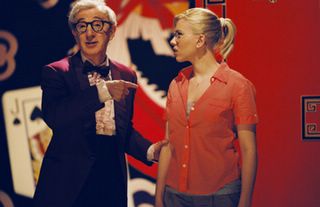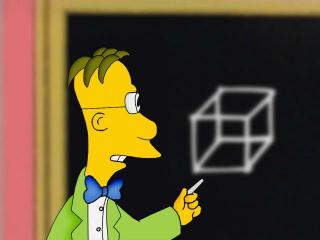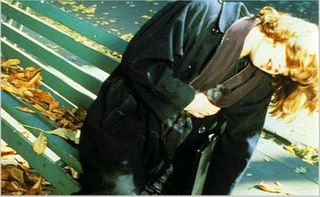O.J. Pimpson
Despite desperate attempts on the part of certain Republican operatives to focus attention on a standard, unexciting power struggle within the upper eschelons of the soon-to-be Democratic Senate, I think the thing everyone was talking about this week was OJ. Well, him and Borat. People sure do love that wacky, mixed up guy...
But mainly, OJ. The Juice. Nordberg. The Nicole Brown-related news this week has been nostalgic for me. Reminds me of high school to see Fred Goldman ranting on my TV. Like that fucking Cranberries song "Linger" that I've always hated, yet for some reason brings me back to my sophomore year in high school with such uncanny clarity that I almost can't stand to hear it for more than a few seconds.
People are still upset about the OJ Simpson verdict. All he did was butcher his ex-wife and her friend, and then try poorly to cover it up before running from the cops in extremely half-assed fashion! Oh, yeah, and then hire expensive scumbag lawyers to select the dumbest jurors possible so they could lie to them and waste everyone's time and money, so OJ could play golf all day and pretend to look for "real killers" rather than accept his punishment. Lighten up, people!
Seriously, though, OJ Simpson is a murderer and deserves to be in jail. But he's not, because rich people, and especially famous rich people, play by different rules in America. If you want to be upset, there's your cause for upset.
Personally, I'm not thrilled with the idea of OJ Simpson making money off of waving his guilt in front of everyone's face now that he's immune to prosecution for his crimes. But I still can't shake the feeling that people are upset about this case for the wrong reason. And that reason is: racism! Neat!
I think white people are so upset about OJ, in large part, because they don't like the idea of a black man killing a white woman and getting away with it. I know, I know, people are upset by miscarriages of justice. But how many wrongfully imprisoned people do we have in America? We release more and more innocent men and women every month because of newly-discovered DNA evidence. And conversely, how many murderers get away without being punished? Tons! Thousands! You may even know someone who has killed with impunity. How would you know?
But OJ seems to stick in America's craw. They can't get over it. So they focus their hatred on him personally, rather than the real problem, which is that the prosecution fucked up miserably and the wealth and relative celebrity of the defendant was rather directly used to influence the outcome of a murder trial. (Also that the whole thing was a total media fiasco from day one, giving insight into the fundamentally flawed cable news enterprise years before its nadir as the propaganda wing of BushCo.)
I'm not saying this is true of all Americans. But it seems to pop up sometimes in odd ways. Here's Bill O'Reilly:
"Here's a man many believe did kill those two Americans, Nicole Brown Simpson being mother of his two children. Yet Simpson is participating in a project that is exploiting the murders. Shamefully, the Fox Broadcasting Unit is set to carry the program, which is simply indefensible, and a low point in American culture. For the record, Fox Broadcasting has nothing to do with the Fox News Channel."
Many believe did kill those two Americans? OJ's American. What, is Bill O'Reilly now a crusader against American-on-American crime? What if they were from Bolivia? It would have still been wrong, right Billy? (Also, that shit about Fox Broadcasting having nothing to do with Fox News Channel? Yeah, it's not true.)
You think Bill O'Reilly's upset because OJ is a murderer? He's never seemed to care about shocking, deplorable violence before unless he sees an opening for a little attention. Here's Bill making light of Bush's favored abuse techniques, mocking whiny liberals who dare oppose Dear Leader and generally supporting our right to hold potentially innocent men against their will for years at a time and torture them.
So, yeah, torture, no big deal. Get over it, pansies. But OJ Simpson on the Television! That crosses the line!
I mean, this Fox TV special horseshit is 10,000 kinds of wrong. You don't put murderers on TV so they can get thinly-veiled confessions off their chest for fun and profit. You just don't air that sort of thing if you have any class or if you are a corporation concerned with how sane poeple will consider your brand from that point on. I mean, this tarnishes the brand identity of the Fox corporation, which is a company that's exclusively about their brand identity. Cause it sure as shit ain't their quality prime-time programming.
But an OJ half-confession is not the most upsetting thing to happen this month. We're in the midst of an evolving environmental calamity the likes of which few non-scientists can even really comprehend. We're caught in the middle of a dystopian nightmare-conflict we created that's responsible for a body count in the hundreds of thousands. Our President, after promising to work with the Democrats to compromise on key national issues, has decided he'd rather not play nice and plunge the nation into a constitutional crisis over judicial nominees. We're still kidnapping people, imprisoning them and torturing them.
This is frightening shit and it's all real and it matters a hell of a lot more than any fucking stupid crap OJ could possibly ever write. I don't care if OJ's penned a sequel to "Madame Bovary" that's twice as good as the original. He should eat shit and die. The OJ thing lingers because the racism thing lingers. And America, I've got to ask, do you have to let it linger? Do you have to? Do you have to? Do you have to let it linger?
[NOTE: Want proof that Americans, particularly Americans with power over other Americans, still act on their fundamentally racist impulses? Here are some UCLA Campus police officers tormenting an Iranian-American US citizen with a taser gun. Don't watch this video if the idea of a group of cops standing around barking orders at an innocent young man who simply didn't have his student ID, who's screaming out in pain with each new electrical charge sounds like something you can't handle. It's shocking and brutal and stomach-turning and it makes me want to mail them back my diploma with a request for a full tuition refund. I'm not using it anyway.]




